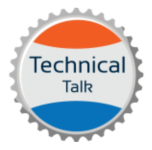Education in the 21st century has undergone a significant transformation with the integration of computers into the learning process. In today’s digital age, modern education and computers are inseparable. This article delves into the multifaceted role of computers in shaping contemporary education, from enhancing classroom experiences to facilitating global learning opportunities.

Introduction: Computers and the Modern Education Landscape
In the rapidly evolving landscape of modern education, computers have emerged as indispensable tools. Their versatile applications have revolutionized how students learn, teachers instruct, and institutions operate. This section provides an overview of the role computers play in reshaping education today.
Bridging the Digital Divide in Education
Modern education, as facilitated by computers, seeks to bridge the digital divide by ensuring equal access to educational resources for all students. The digital divide refers to the gap between those who have access to digital technologies and those who do not. Computers have helped narrow this gap by providing opportunities for students from all backgrounds to access educational content, online libraries, and interactive learning platforms. For further insights into technology’s impact on education and online baccarat, you can visit https://www.bestaucasinosites.com/online-baccarat/.
Enhancing Classroom Learning
Computers empower educators to create dynamic and interactive learning environments, catering to diverse learning styles. In the traditional classroom setting, one-size-fits-all teaching methods might not effectively engage all students. Computers offer the flexibility to tailor lessons to individual needs through multimedia presentations, educational software, and online quizzes. This adaptability fosters a more engaging and immersive learning experience.
Facilitating Distance Learning and Global Collaboration
Modern education leverages computers to transcend geographical boundaries, enabling remote learning and global collaboration. The advent of online education platforms and video conferencing tools has democratized learning. Students can now pursue courses from universities worldwide, breaking down geographical barriers. Additionally, computers facilitate collaborative projects where students and educators from different parts of the world can work together seamlessly.
Personalized Learning Paths
Adaptive learning technologies utilize computers to customize educational content, ensuring students receive personalized instruction. Each student has a unique learning pace and style. Computers equipped with adaptive learning algorithms analyze a student’s performance and tailor the content accordingly. This personalized approach maximizes comprehension and retention, as students progress at their own speed.
Education Management and Administration
Computers streamline administrative tasks, enabling educational institutions to operate efficiently. From enrollment and record-keeping to resource allocation and scheduling, computers optimize the administrative aspects of educational institutions. This efficiency allows educators and administrators to focus more on teaching and less on paperwork.
Empowering Special Needs Education
Computers offer innovative solutions to empower students with special needs, creating inclusive learning environments. Assistive technologies, powered by computers, enable students with disabilities to access educational materials and participate in activities like never before. These technologies, such as screen readers and voice recognition software, remove barriers to learning and ensure that education is inclusive for all.
Fostering Digital Literacy
Modern education places a strong emphasis on digital literacy, equipping students with essential skills for the digital age. In today’s information-driven world, digital literacy is a fundamental skill. Modern education ensures that students not only learn subject-specific content but also acquire the ability to critically evaluate online information, protect their digital identities, and use technology responsibly.
Preparing for Future Careers
Computers in education prepare students for careers in technology-driven industries by equipping them with essential digital skills. As the job market evolves, proficiency in computer skills becomes increasingly vital. Modern education recognizes this need and integrates computer-based coursework, coding classes, and technology-focused projects to prepare students for careers in fields such as STEM (Science, Technology, Engineering, and Mathematics).
Conclusion
In conclusion, computers have become indispensable catalysts for modern education. Their transformative influence touches every aspect of the educational journey, from equalizing access to knowledge to preparing students for the digital age workforce. As technology continues to advance, educators and institutions must harness the full potential of computers to ensure that education remains relevant, engaging, and accessible to all in the 21st century. Through these efforts, the partnership between modern education and computers will continue to shape the future of learning.

